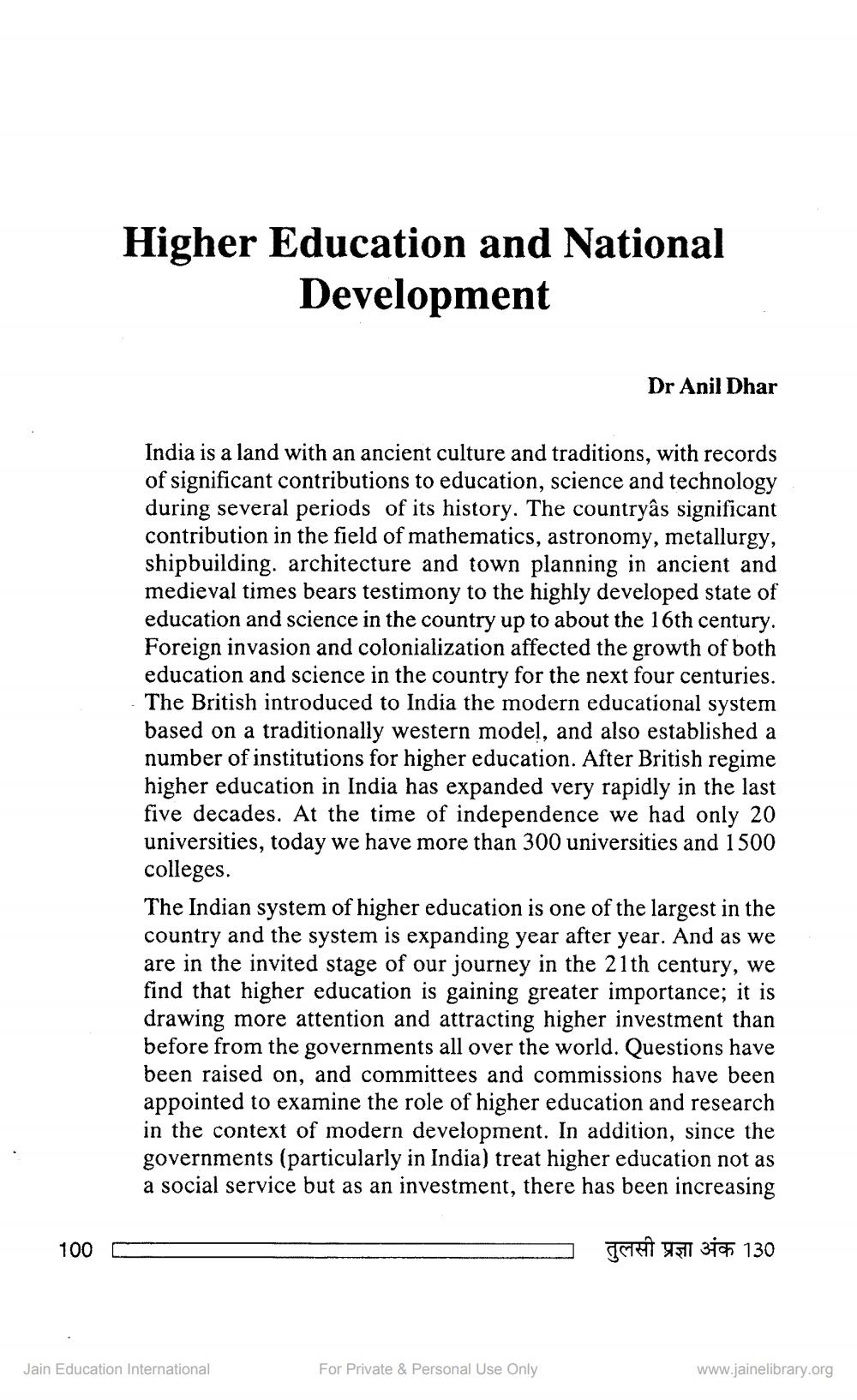________________
Higher Education and National
Development
Dr Anil Dhar
India is a land with an ancient culture and traditions, with records of significant contributions to education, science and technology during several periods of its history. The countryâs significant contribution in the field of mathematics, astronomy, metallurgy, shipbuilding. architecture and town planning in ancient and medieval times bears testimony to the highly developed state of education and science in the country up to about the 16th century. Foreign invasion and colonialization affected the growth of both education and science in the country for the next four centuries. · The British introduced to India the modern educational system based on a traditionally western model, and also established a number of institutions for higher education. After British regime higher education in India has expanded very rapidly in the last five decades. At the time of independence we had only 20 universities, today we have more than 300 universities and 1500 colleges. The Indian system of higher education is one of the largest in the country and the system is expanding year after year. And as we are in the invited stage of our journey in the 21th century, we find that higher education is gaining greater importance; it is drawing more attention and attracting higher investment than before from the governments all over the world. Questions have been raised on, and committees and commissions have been appointed to examine the role of higher education and research in the context of modern development. In addition, since the governments (particularly in India) treat higher education not as a social service but as an investment, there has been increasing
100
-
Joh 2511 312130
Jain Education International
For Private & Personal Use Only
www.jainelibrary.org




